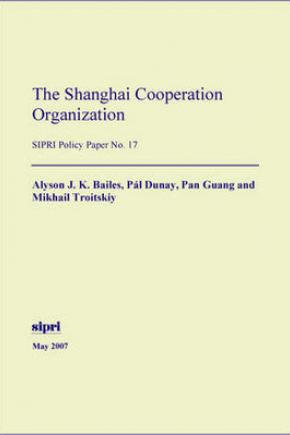The Shanghai Cooperation Organization
There is a clear trend in the 21st century for regional organizations to multiply, to become more multifunctional and to devote themselves in whole or part to security goals. Old-style alliances with a defined opponent are now rare, and most groups address themselves to the reduction of conflict (internally or externally) and to transnational challenges such as terrorism. It is no coincidence that regions where these structures are absent or weak are also those with the greatest remaining problems of interstate tension or internal violence.
While all these phenomena are somewhat under-researched, the forms taken by multilateralism in the area of the former Soviet Union have been particularly little studied. There is a widespread assumption in the West that, because they involve imperfectly democratic states and often reject externally defined norms of governance, such groups are bound to be illegitimate or ineffective or both. This Policy Paper sets out to test and challenge such generalized views by looking in detail at the most dynamic and complex of such groupings, the Shanghai Cooperation Organization (SCO).
Founded in 2001, the SCO includes China as well as the Russian Federation and the Central Asian states Kazakhstan, Kyrgyzstan, Tajikistan and Uzbekistan. Its deeper goals thus include managing potential Sino-Russian tensions or competition, but its overt activities are directed first at transnational threats and, additionally, at economic and infrastructure cooperation. The present study seeks to illuminate the motives and experiences of the SCO's members—with the help of two chapters contributed by a Russian and a Chinese expert, respectively—and to offer a dispassionate analysis of the organization's qualities, strengths, weaknesses and effects. The judgements that emerge are mixed but include the recognition that the SCO makes some real impact on the security of the wide territories it covers and that it has real potential for further development.
This Policy Paper forms part of a SIPRI study programme on modern regional security institutions and has benefited from specific project support by the Swedish Ministry for Foreign Affairs.
1. The Shanghai Cooperation Organization as a regional institution, Alyson J. K. Bailes and Pál Dunay
2. A Russian perspective on the Shanghai Cooperation Organization, Mikhail Troitskiy
3. A Chinese perspective on the Shanghai Cooperation Organization, Pan Guang


